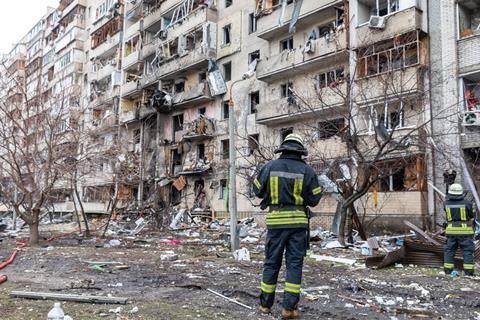Russia’s invasion of Ukraine adding to impact on supply of component which has been under pressure since covid
A shortage of semiconductor chips is the next major headache hard-pressed contractors and consultants will have to deal with, a market forecast from Arcadis has warned.
Demand for the chips was first prompted by the covid-19 pandemic as consumers and businesses started buying new laptops and servers to cater for staff working remotely and children being home-schooled.
Worldwide chip sales slumped in 2018 and 2019 but grew 6.5% the following year and further still in 2021.
And the situation has been exacerbated by the Russian invasion of Ukraine, with the latter being the world’s biggest supplier of neon gas which is key to the chip making process.

Odesa, the port city in southern Ukraine and which is believed to be the next target of Russian bombardment, is home to a firm called Cryoin, which makes the gas that is used to power the lasers that etch patterns into computer chips.
Arcadis said manufacturers had seen their supply of chips slashed from a standard 40 days’ worth of stock before the pandemic to just five increasing the likelihood of delays in production for manufacturers, many of them part of construction supply chain.
> Also read: Aecom pulls out of Russia
> Fosters heads string of architects to pull out of Russia
The firm’s global research manager Agnieszka Krzyzaniak said: “Make no mistake, the current semiconductors shortage is already showing signs of impact on the construction sector.
“Chips are present in virtually every electronic component we use and essential part of building controls and safety systems. There is little prospect of supply chains stabilising in the immediate future, and now is the time for clients to encourage close and early engagement of their sub-contractors with the manufacturing and distribution supply chains. Secure your spot in the waiting line as quickly as possible.”
The warnings were made after Arcadis said the industry was facing a new normal of a permanently tighter labour market.
Upgrading its inflation forecast for 2022, the firm said inflationary pressures on buildings would peak at 5% in London and by the same amount for the regions, with increases of 6% in infrastructure.
It said materials price rises had plateaued but added that labour costs would continue to head north.
The report warned: “An emerging issue that will be increasingly difficult to manage is the labour market following the loss of over 200,000 operatives in two years, including a significant proportion of migrant operatives. A tighter supply of skills at all levels in the industry means that short and mid-term inflationary pressures will continue to grow.”
But it said productivity was up by 12% in real terms compared to pre-covid levels.




























No comments yet